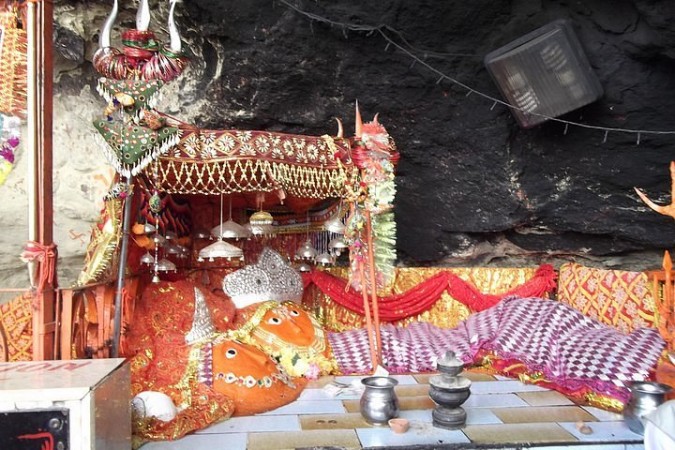
The Hinglaj Devi Temple nestled amidst the breathtaking landscape of the Hingol National Park in southwestern Balochistan, Pakistan, stands as a symbol of divine reverence and spiritual sanctity. Dedicated to the Hindu goddess Hinglaj Mata, also known as Nani Mandir or the Temple of the Grandmother, this ancient temple attracts thousands of devotees from around the world who seek solace, blessings, and a profound connection with the divine. With its rich historical significance, architectural grandeur, and picturesque surroundings, the Hinglaj Devi Temple remains an enduring testament to the enduring power of faith and devotion. It is one of the shaktipeeths, here the head of Goddess Sati fell. The Hinglaj Devi Temple remains an enigmatic and sacred site, standing as a living testament to the ancient roots of Hindu spirituality. With its captivating history, breathtaking architecture, and universal appeal, it continues to draw pilgrims from far and wide, each seeking solace, blessings, and a connection to the divine. As long as its flame of devotion burns bright, the Hinglaj Devi Temple will stand tall as a symbol of cultural heritage and religious fervor, bridging the gap between the past and the present.
ALSO READ - The Amarnath Yatra: A Sacred Pilgrimage to the Holy Cave of Lord Shiva
The origins of the Hinglaj Devi Temple can be traced back thousands of years, making it one of the oldest and holiest Hindu pilgrimage sites in the region. Over time, the temple evolved as a place of worship for the fierce form of the goddess Shakti, who embodies female power and divine energy. Today, the temple stands as a testament to the rich cultural heritage and religious harmony of the region. The Hinglaj Devi Temple's architecture reflects a unique blend of ancient and contemporary styles. The temple complex comprises several shrines, each dedicated to different deities. The main sanctum, adorned with intricate carvings and vibrant murals, houses the idol of Hinglaj Mata. The idol, believed to be self-manifested, exudes an aura of divine grace. Pilgrims offer prayers, light lamps, and seek the blessings of the goddess, who is revered for her ability to grant protection, prosperity, and fertility.
ALSO READ - The nine forms of Shakti
The Hinglaj Devi Temple comes alive during the annual Hinglaj Yatra, a grand festival that attracts a massive influx of devotees. Celebrated during the Hindu month of Chaitra (March-April), the festival witnesses elaborate rituals, vibrant processions, and devotional music, creating an atmosphere charged with spiritual energy. Pilgrims undertake the challenging journey to participate in the festivities, seeking the blessings of Hinglaj Mata and experiencing a deep sense of community and devotion.
While the Hinglaj Devi Temple holds significant importance for Hindus, it also serves as a testament to the religious harmony that exists in the region. The temple welcomes devotees from various faiths, fostering an environment of inclusivity and mutual respect. The serene ambiance and the shared reverence for the divine transcend religious boundaries, uniting people in their quest for spiritual enlightenment and inner peace. Not just that the Hinglaj Devi Temple showcases a unique blend of Hindu and Islamic architectural styles, a reflection of the cultural assimilation that has occurred over centuries. The main shrine is an awe-inspiring structure adorned with intricate carvings and colorful paintings depicting various mythological episodes. While the temple has undergone numerous renovations throughout history, the essence of its sacredness remains unchanged. Though predominantly revered by Hindus, the Hinglaj Devi Temple holds significance for people of various faiths and cultural backgrounds. Its mysticism has attracted not only adherents of Hinduism but also Sufi Muslims and even Buddhists, making it a symbol of unity and inclusivity.
ALSO READ - Kamakhya Devi Temple: A Sacred Abode of Feminine Power